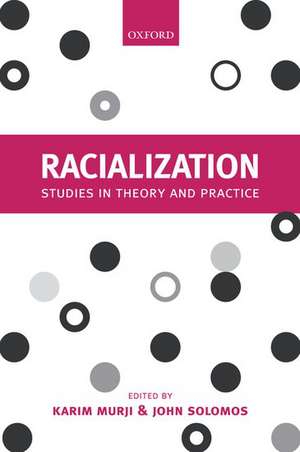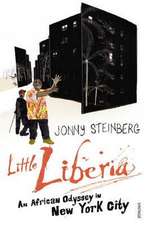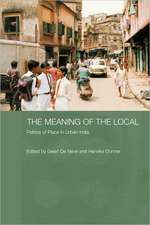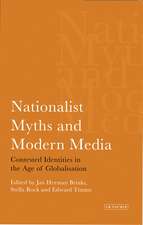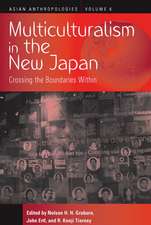Racialization: Studies in Theory and Practice
Editat de Karim Murji, John Solomosen Limba Engleză Paperback – 9 dec 2004
urban communities, youth cultures, immigration, and political life.
| Toate formatele și edițiile | Preț | Express |
|---|---|---|
| Paperback (1) | 473.47 lei 32-37 zile | |
| OUP OXFORD – 9 dec 2004 | 473.47 lei 32-37 zile | |
| Hardback (1) | 530.08 lei 32-37 zile | |
| OUP OXFORD – 9 dec 2004 | 530.08 lei 32-37 zile |
Preț: 473.47 lei
Preț vechi: 654.74 lei
-28% Nou
Puncte Express: 710
Preț estimativ în valută:
90.60€ • 96.88$ • 75.54£
90.60€ • 96.88$ • 75.54£
Carte tipărită la comandă
Livrare economică 07-12 aprilie
Preluare comenzi: 021 569.72.76
Specificații
ISBN-13: 9780199257034
ISBN-10: 0199257035
Pagini: 320
Dimensiuni: 156 x 234 x 19 mm
Greutate: 0.49 kg
Editura: OUP OXFORD
Colecția OUP Oxford
Locul publicării:Oxford, United Kingdom
ISBN-10: 0199257035
Pagini: 320
Dimensiuni: 156 x 234 x 19 mm
Greutate: 0.49 kg
Editura: OUP OXFORD
Colecția OUP Oxford
Locul publicării:Oxford, United Kingdom
Descriere
Descriere de la o altă ediție sau format:
Racialization has become one of the central concepts in the study of race and racism. It is widely used in both theoretical and empirical studies of racial situations. There has been a proliferation of texts that use this notion in quite diverse ways. It is used broadly to refer to ways of thinking about race as well as to institutional processes that give expression to forms of ethno-racial categorization. An important issue in the work of writers such as Robert Miles, for example, concerns the ways in which the construction of race is shaped historically and how the usage of that idea forms a basis for exclusionary practices. The concept therefore refers both to cultural or political processes or situations where race is invoked as an explanation, as well as to specific ideological practices in which race is deployed. It is evident, however, that despite the increasing popularity of the concept of racialization there has been relatively little critical analysis exploring its theoretical and empirical usages. It is with this underlying concern in mind that Racialization: Studies in Theory and Practice brings together leading international scholars in the field of race and ethnicity in order to explore both the utility of the concept and its limitations.
Racialization has become one of the central concepts in the study of race and racism. It is widely used in both theoretical and empirical studies of racial situations. There has been a proliferation of texts that use this notion in quite diverse ways. It is used broadly to refer to ways of thinking about race as well as to institutional processes that give expression to forms of ethno-racial categorization. An important issue in the work of writers such as Robert Miles, for example, concerns the ways in which the construction of race is shaped historically and how the usage of that idea forms a basis for exclusionary practices. The concept therefore refers both to cultural or political processes or situations where race is invoked as an explanation, as well as to specific ideological practices in which race is deployed. It is evident, however, that despite the increasing popularity of the concept of racialization there has been relatively little critical analysis exploring its theoretical and empirical usages. It is with this underlying concern in mind that Racialization: Studies in Theory and Practice brings together leading international scholars in the field of race and ethnicity in order to explore both the utility of the concept and its limitations.
